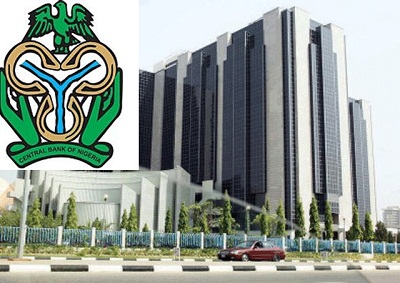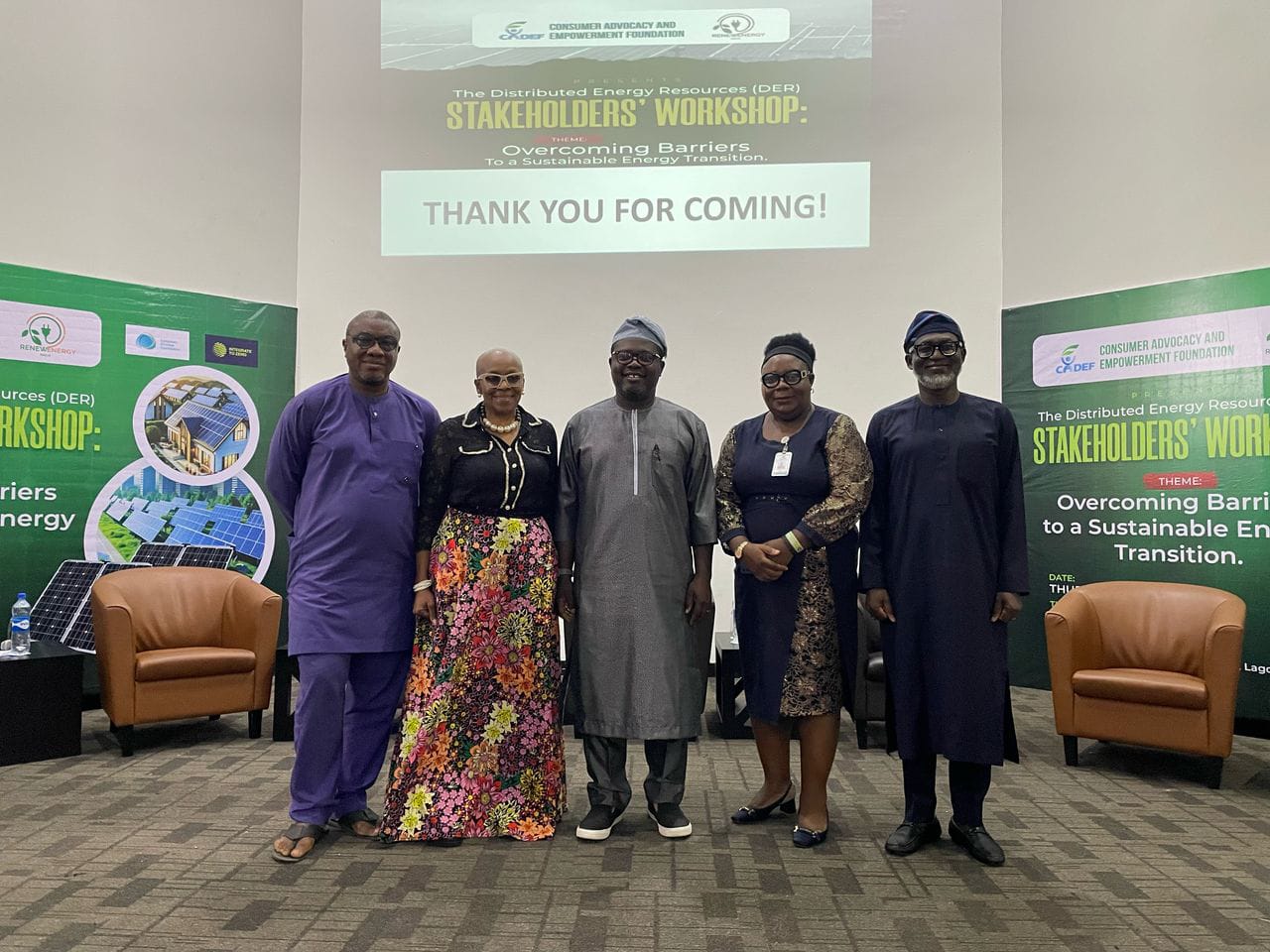This is contained in a statement signed by Dr Ejike Ndiulo, head of Corporate Communications, Air Peace, on Wednesday in Lagos.
According to Ndiulo, the decision is necessary because NiMet is the agency responsible for issuing CNH (Current Nowcast of Hazardous Weather) reports, critical for safe landings, especially during this season of heavy rainfall and thunderstorms.
He said without these reports from the control tower, flight safety could not be guaranteed.
“As a safety-first airline, we have chosen to act responsibly by suspending operations until NiMet resumes full service.
“We understand this may cause inconvenience, and we sincerely apologise. Passengers will be contacted with updates and options for rescheduling,” he said.
The staff of NiMET on Tuesday commenced an indefinite strike over the condition of service and other demands.
News
Reps Accuse NNPC, NCC, Others of Diverting N9 Trillion

A House of Representatives’ report has revealed that some revenue generating agencies have short-changed the Federal Government N8.8 trillion and the report listed the agencies to include; Nigerian National Petroleum Corporation (NNPC); and Nigerian Communications Commission (NCC) among others.
The agencies collectively generated N9.3trillion but remitted only N174.9bilion to the treasury between 2009 and last year according to the House report.
The agencies have acted contrary to the Fiscal Responsibility Act (FRA), 2007 and a 2011 Federal Ministry of Finance directive.
The FRA allows agencies to remit to the Treasury based on their annual operating surplus framework. The Finance ministry’s directive requested them to remit 25 per cent of their gross collection to the Treasury.
Independent revenue derived from Internally Generated revenue (IGR), is 100 percent dedicated to the Federal Government – to the exclusion of other tiers of government.
The agencies were supposed to have remitted N3.06trillion generated in 2009 as independent revenue, but they sent in N46.8billion or 1.53 percent to the Treasury.
The report also revealed that in 2010, the agencies generated N3.07trillion, but remitted N54.1bilion or 1.76 percent to the Federal Government.
In 2011, N3.17trillion was generated, but only 2.33 per cent or N73.8b was remitted to the Treasury.
NNPC and its subsidiaries generated N6.1trillion (excluding proceeds from crude oil and gas) during the period but remitted nothing to the Federal Government.
A general analysis of the agencies’ submission (excluding the NNPC’s) shows expected remittance of N189billion as at October, last year.
Only N80bilion had been paid to the Treasury (42 per cent compliance), leaving a shortfall of N109billion.
Some of the agencies apart from the NNPC, and NCC are: Federal Capital Territory (FCT), Federal Airports Authority of Nigeria (FAAN), Nigerian Maritime Administration and Safety Agency (NIMASA), Nigerian Ports Authority (NPA), Nigerian Broadcasting Commission (NBC) and the Federal Mortgage Bank (FMBN) among others.
With the exception of the Central Bank of Nigeria (CBN), all the agencies prepared and submitted their audited accounts to the office of the Auditor General outside the time stipulated in the Fiscal Responsibility Act, 2007.
The report of the House Committed on Finance on independent revenue generation and remittances to the Consolidated Revenue Fund by government-owned agencies that was considered yesterday by the lawmakers, however, praised five agencies for attempting to adhere to the FRA to some extent by regularly remitting their independent revenues to the Federal Government.
These are: CBN, Federal Radio Corporation of Nigeria (FRCN), Nigerian Television Authority (NTA) and two others.
Abdulmumin Jubrin, chairman of the committee presenting the report, said between 2009 and 2011, the NNPC and all its subsidiaries generated N6.132trillion as Internally Generated Revenue (IGR), but remitted no part of it to the Federal Government.
According to him, the money excluded what was generated from crude oil and gas sales.
The report also revealed that the Federal Inland Revenue Service (FIRS) provided confusing accounting figures of its independent revenue in 2009.
While N5.6m was declared, when the agency’s audited account was reviewed, another sub-head of N323m was discovered.
According to the committee’s findings and in consonance with the submission of the Fiscal Responsibility Commission (FRC), most of the reviewed agencies were found culpable of not adequately making returns to the Treasury as well as also preparing different sets of account.
The agencies were found to have always prepared one account for the FRC and another for the Auditor General’s office.
The lawmakers, in adopting the recommendations of the report, mandated the Finance Committee to work on the Fiscal Responsibility Act (FRA) 2007 within four weeks so as to check various loopholes that enable government agencies spend what they generate without recourse to the National Assembly.
The Committee on Finance is to probe other agencies that were not captured in this exercise to ascertain their status.
“Agencies that have refused to cooperate with the committee are to do so within seven days or Section 89 of the constitution will be invoked on them.
The other recommendations are that: The Ministry of Finance should compel agencies which have outstanding balances to be paid to pay up immediately;
•Any agency found to be spending outside budgetary provisions should be punished;
•All revenues due to the Consolidated Revenue Fund of the Federal government must be paid as and when due;
•The Accountant General of the Federation should submit to the Committee a detailed monthly report of remittances of Federal Government independent revenue;
•The FRC should sanction any agency that fails to submit its audited annual account as and when due;
• All agencies should henceforth present evidence of remittances into the Consolidated Revenue Account to the relevant Committees of the House during their budget performance defence; and
• The Federal Ministry of Finance should immediately ensure that all funds hidden in various agencies’ bank accounts should be mopped up and promptly remitted to the Consolidated Revenue Fund and report to the Finance Committee within three months”.
The shortfall of remittances of some of the agencies are: Nigerian National Petroleum Corporation (NNPC)-N6.1trillion; Federal Capital Territory (FCT)-N7.7b; Central Bank of Nigeria (CBN-N45.5b; Federal Airport Authority of Nigeria (FAAN)-N6.9b; Nigerian Maritime Administration and Safety Agency (NIMASA)-N1.4b; National Agency for Food, Drug Administration and Control (NAFDAC)-N1b; Nigerian Port Authority (NPA)-N11.1b; Nigerian Communications Commission (NCC)-N3.3b; Nigerian Broadcasting Commission (NBC)-N211.7m; Federal Mortgage Bank (FMBN)-N300.4m; West African Examination Council (WAEC)-N2.5b; National Sports Commission (NSC)-N3.7m; Standards Organization of Nigeria (SON)-N252.7m; Federal Road Safety Commission (FRSC)-N410.9m; Federal Housing Authority (FHA)-N221.2m;
Nigeria Shippers Council-N6.4m; Nigeria Deposit Insurance Corporation (NDIC)-N8.8b; Nigerian Airspace Management Agency (NAMA)N3.6b; Industrial Training Fund (ITF)-N4b; Corporate Affairs Commission. (CAC)-N2b; Bank of Industry (BoI)-N3b; and Joint Admissions and Matriculation Board (JAMB)-N1.4b.
News
Lagos Sets the Benchmark in Renewable Energy as CADEF Launches Transformative Platform

Against the backdrop of Lagos State’s proactive efforts to reform its electricity sector, the Consumer Advocacy and Empowerment Foundation (CADEF) has launched its ‘Renew Energy Nigeria’ platform, a nationwide initiative with potential synergies for the state’s ambitious energy goals.

Professor Chiso Ndukwe-Okafor, CADEF’s Executive Director, introduced the platform in Lagos, highlighting its aim to empower Nigerians with information and access to decentralized renewable energy (DER) solutions. “The launch of this platform marks a significant step towards democratizing access to information and resources within Nigeria’s burgeoning sustainable energy sector.”
The platform’s launch comes as Lagos State, under the Lagos State Electricity Law, is actively establishing a regulatory framework and attracting private sector investment. Kamaldeen Abiodun-Balogun, General Manager of the LSEB, detailed the state’s progress in creating a functional electricity market, ensuring payment security, and addressing infrastructure challenges. “This law enabled us to create policy documents and establish regulatory agencies to initiate the implementation of the Lagos electricity market,” he explained, adding that private sector involvement will be key in areas where existing Discos face performance issues.
Segun Adaju, a private sector player deeply engaged in the energy sector, lauded Lagos State’s leadership. “In all these, Lagos State is always setting the pace. Many of us in the private sector players like myself, we are also looking up to Lagos State to set the pace,” he said, also mentioning his work on the Centralized Renewable Energy Desk for the state government.
While acknowledging national-level challenges such as import restrictions and forex fluctuations as noted by Professor Ndukwe-Okafor: “The recent federal plan on restrictions on the importation of solar products and the fluctuation of forex rate have made clean energy solutions costly”, the focus on Lagos State’s progress suggests a promising local environment for DER adoption, potentially amplified by CADEF’s new platform.
The broader socio-economic context, as highlighted by Olumide Ajayi, “Over 40% of Nigerians do not have access to reliable electricity”, underscored the importance of initiatives like ‘Renew Energy Nigeria’ and the enabling policies being implemented in states like Lagos.
Professor Ndukwe-Okafor concluded with a powerful call to action. “This platform is not an isolated intervention. It is aligned with our ideal country’s national vision, the 30-30-30 initiative. Let us not build a solar future that only serves the wealthy. Let us democratize clean energy. Let us make it local, inclusive, and scalable.”
The launch of “Renew Energy Nigeria” marks a significant step towards a more sustainable and equitable energy future for Nigeria, driven by innovation, collaboration, and a commitment to empowering its citizens. The platform is now live and accessible to all Nigerians seeking reliable and clean energy alternatives
News
EFCC Secures Arrest Warrant for Six CBEX Promoters

A federal high court in Abuja has granted permission to the Economic and Financial Crimes Commission (EFCC) to arrest and detain six Crypto Bridge Exchange (CBEX) promoters over allegations of investment fraud to the tune of over one billion dollars.

Emeka Nwite, presiding judge, gave the order following an ex parte application moved by Fadila Yusuf, counsel to the EFCC.
In the application by the EFCC, the six suspects are Adefowora Olanipekun, Adefowora Oluwanisola, Emmanuel Uko, Seyi Oloyede, Avwerosuo Otorudo and Chukwuebuka Ehirim.
The commission sought an order of the court for a warrant of arrest of the defendants.
They also prayed the court for “an order remanding the defendants in the custody of the complainant/applicant pending the conclusion of investigation of the alleged offences and possible prosecution”.
Yusuf said that the defendants are at large and a warrant of arrest is required to arrest the defendants for proper investigation and prosecution of this case.
In the affidavit in support of the motion, the EFCC said preliminary investigation into the intel revealed that the defendants “using their company ST Technologies International Limited, promoted another company Crypto Bridge Exchange (CBEX) by making adverts and lured unsuspecting members of the public to invest crypto cryptocurrencies on the CBEX investment platform”.
The EFCC said the defendants promised an unrealistic return on investment of up to 100 percent.
“The victims were made to convert their digital assets into a stablecoin of USDT for onward deposit into the suspects’ crypto wallet,” Yusuf said.
“The victims were initially given full access to the platform to monitor their investment.
“Following the deposits valued at over $1 billion by the victims, the CBEX investment platform became inaccessible to them, and they could no longer withdraw from the investment made.
“The victims later discovered that the said scheme is a scam.
“During the course of investigation, it was discovered that the said ST Technologies International Limited, though registered with the Corporate Affairs Commission (CAC), it was not registered with the Securities and Exchange Commission (SEC) for investment purposes.
“It was also discovered during the investigation that the defendants had moved out of their last known address in Lagos and Ogun states.”
The anti-graft agency said obtaining a warrant of arrest was necessary in order to place the defendants on a watch list, enabling authorities to trace and apprehend the suspects to face the charges brought against them.
Nwite granted the request for a warrant of arrest and remand, adding that the order was necessary to enable the commission to apprehend the defendants and conclude its investigation.
“I have listened to the submission of the learned counsel for the applicant,” Nwite said.
“I have also gone through the affidavit evidence with exhibits thereto, along with the written address.
“I am of the view and I so hold that the application is meritorious.
“Consequently, the application is granted as prayed.”
Earlier in April, reports emerged that CBEX users could no longer withdraw their funds.
On Monday, angry investors stormed and looted the office of Smart Treasure (ST Team), an affiliate of CBEX, in Ibadan, Oyo State.
The EFCC recently confirmed receiving multiple complaints about the platform.
Dele Oyewale, the commission spokesperson, assured affected investors that efforts were underway to recover their funds.
News
Air Peace Suspends Flight Operations Nationwide


 E-Business1 day ago
E-Business1 day agoALX Nigeria Launches 2025 Ventures Incubator, Premieres Pan-African “Do Hard Things” Finale

 E-Financial1 day ago
E-Financial1 day agoInsurance Bill Seeks Compensation for Customers of Failed Firms

 E-Financial2 days ago
E-Financial2 days agoUnion Bank’s Edu360 Initiative Scores Big for Nigerian Football Development

 E-Financial1 day ago
E-Financial1 day agoSANEF’s Uche Uzoebo Highlights AI as Next Frontier in Advancement of Financial Inclusion

 E-Financial1 day ago
E-Financial1 day agoFintechs Add $18m to New Tax Initiative

 E-Financial1 day ago
E-Financial1 day agoCBN Puts Accumulated Savings, Liquid Assets by Nigerians at N75.65trn

 General News2 days ago
General News2 days agoMTN Go Make A Difference Campaign Heads to Kano, Celebrating Culture and Community Impact

 Telecom2 days ago
Telecom2 days agoEU Fines Apple and Meta €700m in Landmark Digital Markets Act Enforcement



























